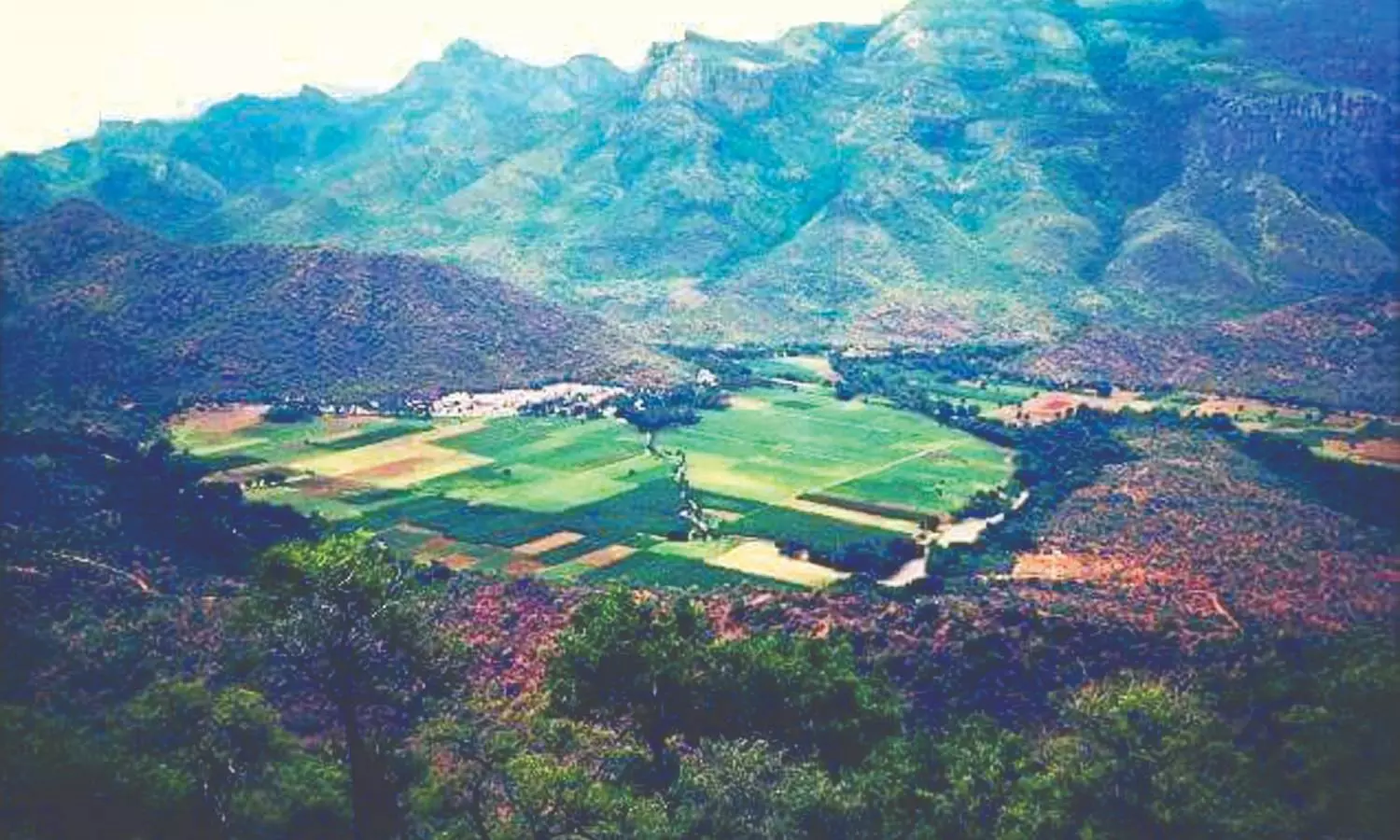Months after HC eviction order, no official word on Thengumarahada
Relocation of 495 families was ordered due to man-animal conflict near the Tiger Reserve.;

Farmland in Thengumarahada village (File)
COIMBATORE: More than two months after the Madras High Court’s order to relocate 495 families in Thengumarahada, a scenic village nestled in the eastern boundary of the Mudumalai Tiger Reserve (MTR) in the Nilgiris, life goes on in the village as usual with no official action on the ground on the order.
The court order was issued after it was observed that the human settlement in the area was leading to man-animal conflict and the families were assured a compensation of Rs 15 lakh each.
The court ordered that a total compensation amount of Rs 74.25 crore be released from the Compensatory Afforestation Fund Management and Planning Authority (CAMPA) to the National Tiger Conservation Authority (NTCA). Thereafter, the NTCA was directed to transfer the amount to the forest department for disbursal of compensation to relocate the villagers and called for a compliance report.
But with no action on the ground even after two months, the villagers here too remain undecided on their next course of move.
“The villagers haven’t received any official communication on the eviction process. Here, life goes as usual as we haven’t taken any collective decision to move out or stay back,” said Suguna Manoharan, president of Thengumarahada Panchayat.
They lamented that they were not consulted before initiating the eviction process.
“Apart from giving a relief package, the government should also provide us with livelihood options. Some villagers favour relocation, if their demand for land and house are met, whereas others have decided to stay in the village for the rest of their life as this is their ancestral land,” Manoharan added.
K Gopalakrishnan, another villager from Thengumarahada, however, said almost 90 per cent of villagers are willing to relocate.
“Most of the villagers are ready to move out due to lack of proper roads and absence of adequate transportation facilities. Also, it is challenging to continue farming activities as there is a shortage of labourers and many prefer going to other lucrative jobs rather than toiling in farmlands,” he said.
Back in 1948, when there was heavy drought and scarcity of food, around 100 acres of reserve land was leased to around 142 persons to take up farming. Eventually, the village came into existence in 1952 and over 500 acres of land was leased to Thengumarahada Co-operative Farming Society, constituted by its members to do agriculture with a condition that it could be taken over anytime.

